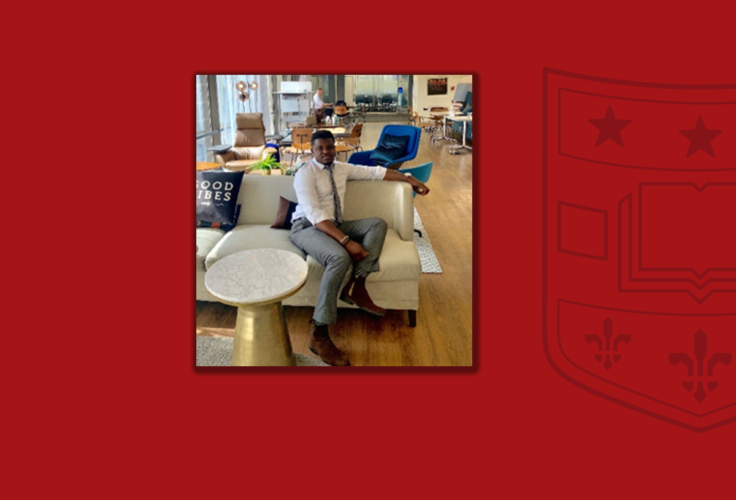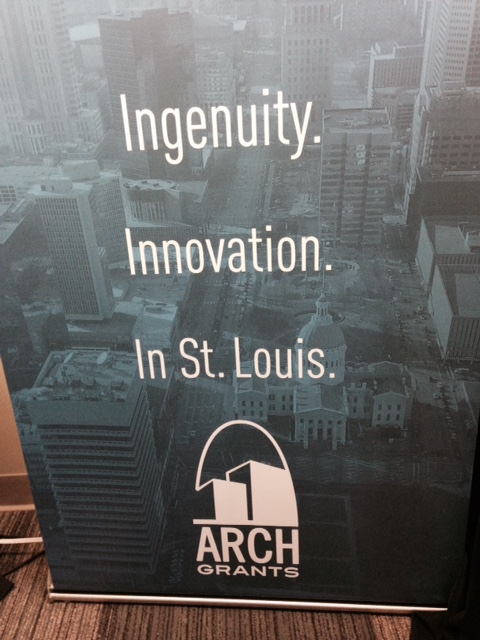Part of a series about summer internships from Olin MBA ’20 students. Today we hear from Abraham Kola-Amodu, who worked at AT&T as a finance intern.
I spent 13 weeks of the summer as a finance leadership development program intern at AT&T corporation. Before landing this opportunity, I harnessed available resources within and outside of Olin. I attended conferences, browsed company websites, job search websites and finally, the now disengaged MBA Focus.
The latter was where I’d found the job posting, as AT&T has some partnership with Olin Business School. I applied and was invited to perform a personality test online, which led me to the next stage.
Before my first interview, I recalled that the last interview I’d had was over a month prior. I knew I was rusty and not smooth, so I engaged Jeff Stockton, a career coach with the Weston Career Center, who gave me a solid prep one hour before my interview. The rest is news.
My work at AT&T, even though it was in finance, entails a lot of project and team management. Luckily, a lot of team activities, people, time and project management skills were taught in the first year, and that was what helped me the most in the period of my internship.
For the remainder of business school, I intend to brush up more on some aspects of finance, because there were some topics that I saw a few other interns discuss and I was totally blank on. This is not to say there were no topics I knew that were alien to them also.
My typical day at work is very unlike many others. I spend about three to four hours a day on meetings. Why? Because my role is heavily strategy based and by reason of that, I must meet with different teams on what to do next, appraise what was done and decide how to make improvements to the existing ideas and concepts we have.
Another hour or so of my day is spent networking—coffee chats or meet-and-greets with the top-level management company officials. Also, in many instances, an hour is spent on events or programs organized specifically for the interns, which ranges from volunteer activities to trainings and happy hour. The remainder of the day is my “me time” to do my actual work.
The finance leadership development program is geared at getting MBAs to lead the company, which is why it is structured in a way that we always meet with the executives. Networking is very vital in climbing the corporate ladder here at AT&T, thereby helping me get set of achieving my C-suite goal.




 I found the Microsoft Ventures program particularly interesting because it is a program that pairs a startup with a mentor company in order to help the business grow. This semester, I did a presentation on Arch Grants, and had the pleasure of learning about their entrepreneurial competition. Just as Microsoft Ventures aims to foster the entrepreneurial spirit of Israel, Arch Grants aims to do the same for St. Louis. Just as Arch Grants funds a number of companies located in T-Rex, a center for entrepreneurs to collaborate, both Israeli accelerators give different entrepreneurs a physical space to exchange ideas.
I found the Microsoft Ventures program particularly interesting because it is a program that pairs a startup with a mentor company in order to help the business grow. This semester, I did a presentation on Arch Grants, and had the pleasure of learning about their entrepreneurial competition. Just as Microsoft Ventures aims to foster the entrepreneurial spirit of Israel, Arch Grants aims to do the same for St. Louis. Just as Arch Grants funds a number of companies located in T-Rex, a center for entrepreneurs to collaborate, both Israeli accelerators give different entrepreneurs a physical space to exchange ideas.